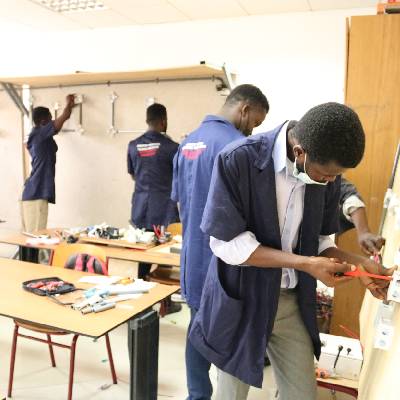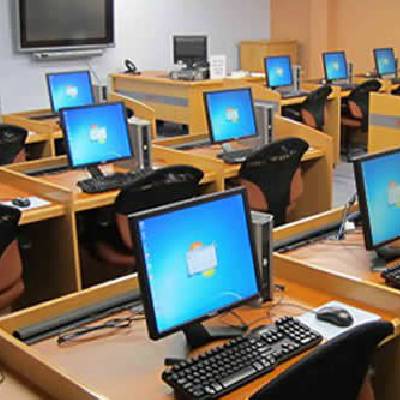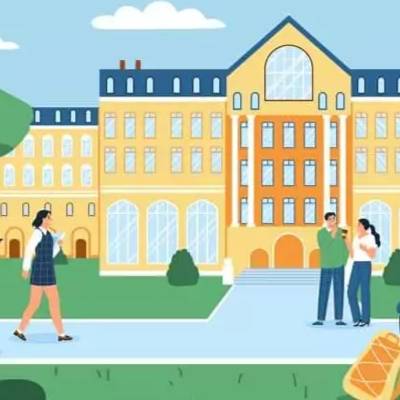
Plumbing is the system of pipes, tanks, fittings, and other apparatus required for the water supply, heating, and sanitation in a building. Plumbers work to maintain and install plumbing systems.
Students in this plumbing technology program learn how to design, install, and repair residential and commercial plumbing systems and hydronic heating systems. Some of the skills acquired are joining different types of piping materials, reading blueprints, and installing and repairing boilers, plumbing fixtures, faucets, and water heaters.
Employment opportunities in the plumbing and pipe-fitting industries include:
- Installation of plumbing and heating systems in new buildings.
- Installation and maintenance of plumbing, heating, and piping systems for industries, public utilities, or government agencies.
- Self-employment is another option.
Many graduates become self-employed plumbers after completing their apprenticeships.
Entry Requirements
The Minimum Entry Requirements are:
- KCSE Mean Grade D (Plain), or;
- Pass in a relevant Artisan course, or;
- An Equivalent qualification approved by KNEC.
The duration for the course is two (2) years which includes a compulsory industrial attachment.
This program is examined by KNEC at the end of the two years training period.
Objectives of Plumbing
Plumbing certificate students will be able to enter the plumbing industry with the knowledge needed to be successful in the plumbing trade.
A graduate of this program will be able to do the following:
- Apply safety principles and demonstrate good work habits in the trade.
- Use the hand and power tools of the trade.
- Identify piping materials and install them using proper connections.
- Use and apply trade terms and technical data.
- Read and interpret blueprints, specifications, and codes as they apply to the trade.
- Layout, estimate, calculate and use mathematical skills as required in the trade.
- Install, maintain, and repair plumbing, heating, and mechanical systems and equipment.
- Keep abreast of new developments in the field.
- Demonstrate the ability to write letters of application, memos, work orders, reports, and apply communication skills in the world of work
Related articles
-

A Guide to Civil Engineering Degree and Diploma Programs in Kenya
08-Nov-2025 -

Electrical Engineering in Kenya: A 2025 Guide for KCSE Graduates
08-Nov-2025 -

Mechanical Engineering in Kenya: A 2025 Guide for KCSE Graduates
08-Nov-2025 -

Engineering Courses in Kenya: A Guide for 2025 KCSE Graduates
08-Nov-2025 -

Education Pathways in Kenya — From Basic Education to Tertiary | College Guide
06-Nov-2025 -

The Bird and the Mirror: A Reflection on Identity, Perception, and Illusion
07-Feb-2025
Colleges offering Plumbing

Thika Town
Jodan College of Technology

Thika Town
Thika Institute of Business Studies

Machakos Town
Machakos Institute of Technology

Nakuru Town East
Rift Valley Institute of Science and Technology

Gilgil
Comboni Polytechnic

Emgwen



